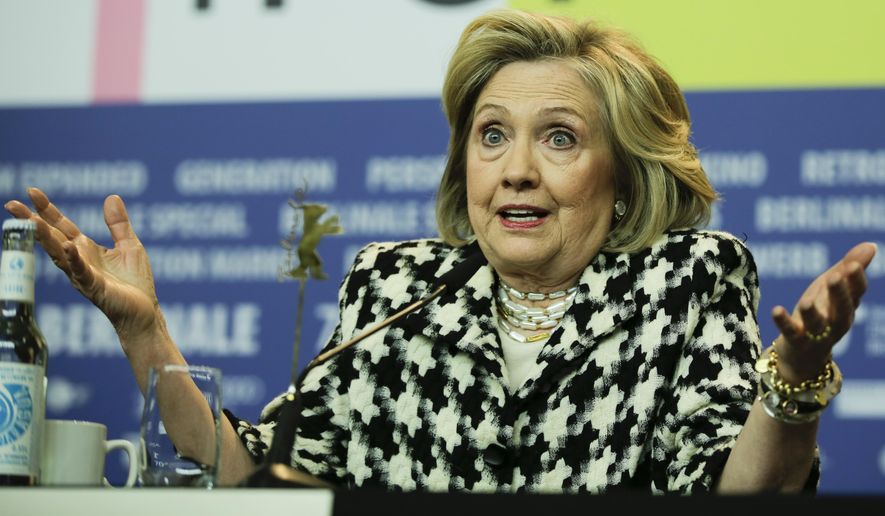A federal judge on Monday ordered former Secretary of State Hillary Clinton to sit for a deposition in a lawsuit related to her use of a private email server while at the State Department.
U.S. District Judge Royce Lamberth issued the order in response to a Freedom of Information Act lawsuit filed more than five years ago by Judicial Watch, a conservative watchdog group.
Judicial Watch filed the lawsuit looking for information on whether Hillary Clinton intentionally skirted the Freedom of Information Act by relying on a private server and email account to do government business.
“The court agrees with Judicial Watch — it is time to hear directly from Secretary Clinton,” wrote Judge Lamberth, who was appointed by then-President Ronald Reagan.
Questions about Mrs. Clinton’s use of a private server dogged her during the 2016 presidential election. She has always denied wrongdoing, even as she was grilled by congressional lawmakers.
Mrs. Clinton maintained during her presidential campaign that she had already answered numerous questions about the matter. But Judge Lamberth said those responses were “either incomplete, unhelpful or cursory at best.”
“Simply put her responses left many more questions than answers,” he said, adding that relying on written responses will only muddle the picture.
Judge Lamberth also approved Judicial Watch deposing top Clinton aide Cheryl Mills and two State Department technology managers who oversaw Mrs. Clinton’s email management.
However, Judicial Watch cannot ask Mrs. Clinton or Ms. Mills about the government’s response to the 2012 terrorist attack in Benghazi, Libya, as it had sought to do.
“Any further discovery should focus on whether she used a private server to evade [the Freedom of Information Act] and, as a corollary to that, what she understood about State’s records management obligations,” he wrote.
Judge Lamberth also approved a subpoena for Google to obtain records related to Mrs. Clinton’s email while she was secretary of state.
“The court is not confident that State currently possesses every Clinton email recovered by the FBI; even years after the FBI investigation, the slow trickle of new emails has yet to be explained,” Judge Lamberth wrote.
He noted the FBI released 30 unknown Clinton emails late last year after previously maintaining that it had no records of undisclosed emails.
The State Department had argued to close the discovery phase, but Judge Lamberth said “there is still more to learn.”
“How did she arrive at her belief that her private serve emails would be preserved by normal State Department processes for email retention?” he wrote.
Judicial Watch President Tom Fitton hailed the ruling, saying in a statement that his group “uncovered the Clinton email scandal and we’re pleased that the court authorized us to depose Mrs. Clinton directly on her email conduct and how it impacted the people’s ’right to know’ under FOIA.”
• Jeff Mordock can be reached at jmordock@washingtontimes.com.




Please read our comment policy before commenting.